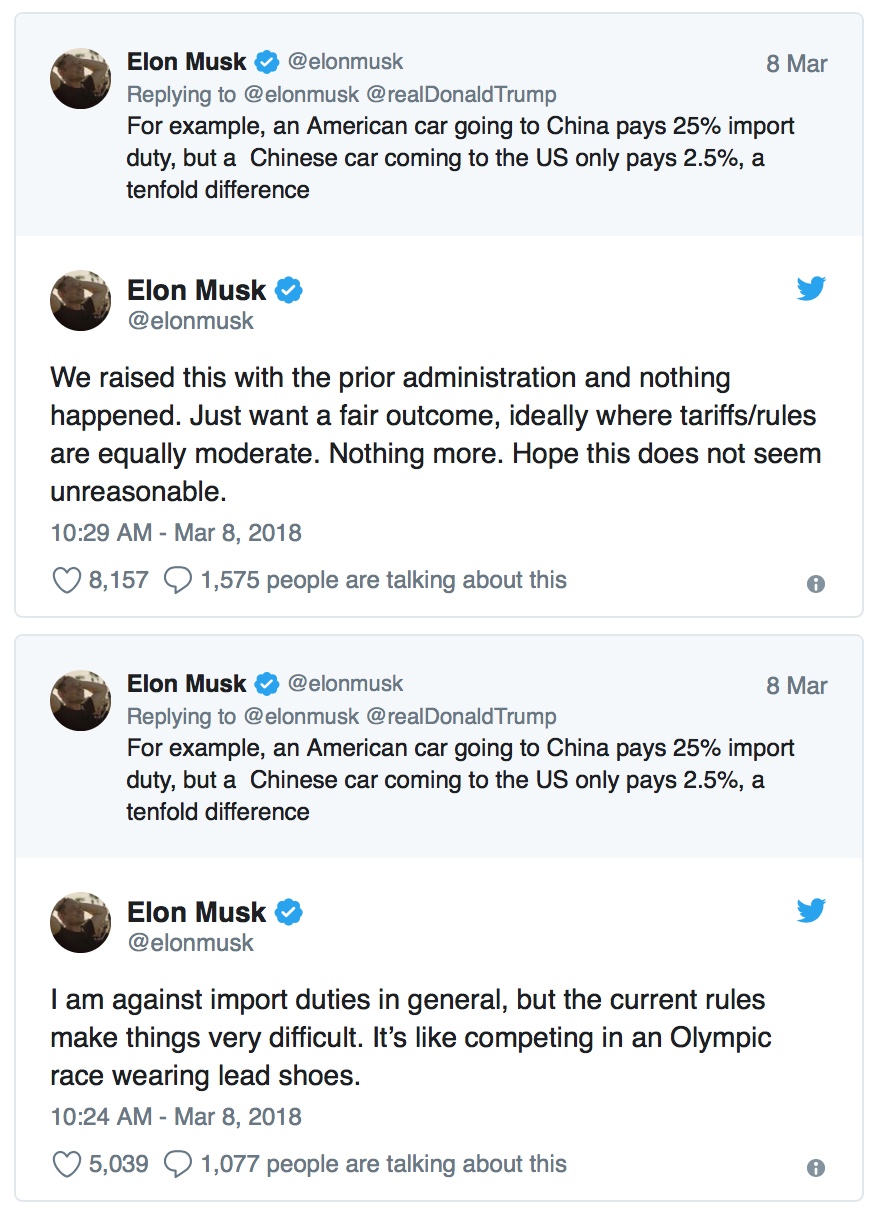By David R. Baker, San Francisco Chronicle
Most of the aluminum Claudia Wentworth’s company uses to make rooftop solar panel racks in Walnut Creek comes from the United States.
It is precisely the kind of American product that President Trump’s new tariffs on imported aluminum and steel are designed to protect.
But while the tariffs, imposed by orders that Trump signed Thursday, may benefit domestic metal producers, they will raise costs for Wentworth’s company, Quick Mount PV. Aluminum prices, she said, are already rising.
“I’m sure it’s a cost that will have to get passed on to customers, because within the solar industry, our margins have already been squeezed,” said Wentworth, whose business employs about 85 people. The solar industry, she noted, is already grappling with a 30 percent tariff Trump slapped on imported panels in January.
“It’s a double whammy,” Wentworth said. “What I need to do is run a company that can remain healthy, and this does not help at all.”
Trump’s new tariffs, adopted over the objections of many in his own party, are intended to protect American workers. But businesses that make products out of aluminum or steel will now face climbing costs, as the tariffs push up the price of imports and domestic producers — partially shielded from foreign competition — raise their prices as well.
The same dynamic will play out in companies as small as Quick Mount and as large as Tesla, which uses both steel and aluminum in the electric cars it builds in Fremont.
“Like all automakers, Tesla will be affected,” said Michelle Krebs, executive analyst at Autotrader. “And we may see car prices rise as automakers and their suppliers pass along the cost increases to car buyers.”
Tesla declined to comment on the tariffs. CEO Elon Musk, however, took to Twitter Thursday urging Trump to look at China’s import duties on American cars, as well as other rules Musk said unfairly hinder U.S. automakers trying to operate there.
“I am against import duties in general, but the current rules make things very difficult,” Musk tweeted. “It’s like competing in an Olympic race wearing lead shoes.”
California depends more than many states on international trade. Sen. Dianne Feinstein, in a statement Thursday criticizing the tariffs, said almost 25 percent of the country’s steel and aluminum imports come through California ports, trade activity worth more than $4 billion.
And yet, the overall effect of the tariffs may be limited — assuming they don’t lead to an all-out trade war.
“It’s a bad thing, but not a hugely bad thing, if it stops here,” said Andrew Rose, a professor of international business at UC Berkeley. Much of California’s international trade, he said, involves business services and intellectual property — “the stuff coming out of Hollywood or Silicon Valley, and that won’t be affected by this.”
The danger, however, is that tariffs will trigger an escalating series of disputes among the United States and its trade partners, leading to more extreme measures.
“Say Trump says, ‘Screw you, we’re pulling out of NAFTA,’” Rose said. “That would disrupt a lot of supply chains. And when you undo supply chains, a lot of people lose their jobs.”
NexTracker, a Fremont company that makes tracking mechanisms and ground mounts for large-scale solar projects, manufactures both in the United States and abroad and obtains its steel from multiple countries. Although it’s still unclear which countries will be subject to the tariffs, CEO Dan Shugar expects steel costs to rise across the board. He still doesn’t know if NexTracker will try to pass those costs on to customers. The threat of tariffs has already brought more uncertainty to the market for large-scale solar projects.
“It’s protectionism that increases costs for everyone, benefiting a limited number of producers,” Shugar said.
Source: https://www.sfchronicle.com/business/article/Trump-tariffs-bump-up-costs-for-California-12739600.php


